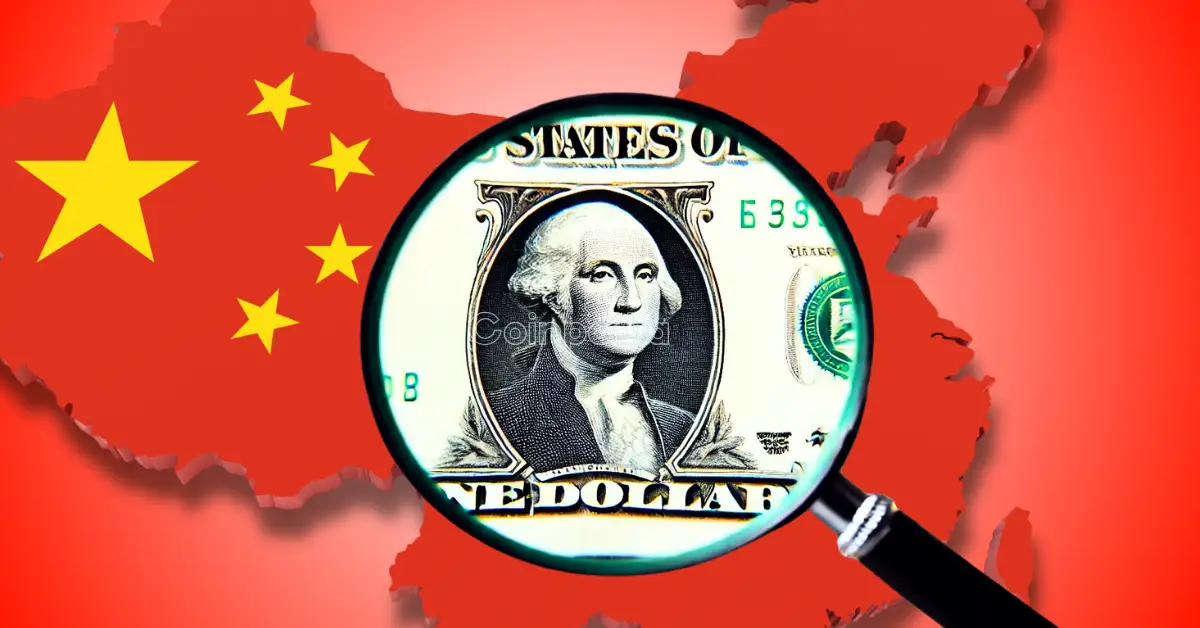
China is concerned about US dollar-backed stablecoins increasing US financial dominance and is exploring expanding its digital yuan's role.
China is considering developing its own stablecoins, particularly through Hong Kong, and leveraging existing platforms like Alipay.
The US and China's contrasting approaches to crypto reflect a broader technological and financial rivalry.
China is waking up to the stablecoin challenge! Recently the United States doubled down on crypto development, announcing its intent to build a national strategic Bitcoin reserve. With US dollar-backed stablecoins spreading fast, thanks to Trump’s pro-crypto stance, Europe has already raised red flags over monetary control. Now, China is weighing its options.
Will it fight back with its own digital currency? Will it embrace stablecoins or try to control them?
The Stablecoin Threat to Financial Power
A recent article by Zhang Ming, a top economist at China’s National Finance and Development Laboratory, highlights the risks of stablecoins tied to the U.S. dollar.
These digital assets now dominate crypto trading and decentralized finance (DeFi). Many people in countries with weaker currencies use them as a store of value. But Zhang warns that stablecoins could further cement the U.S. dollar’s global influence by linking its real-world financial power to the digital economy.
Expanding China’s CBDC Scope
To push back against dollar-backed stablecoins, Zhang suggests expanding China’s central bank digital currency (CBDC), the digital yuan.
Right now, the digital yuan is mostly used for retail transactions as a digital version of cash (M0). But Zhang believes it should cover more—like bank deposits (M1 and M2) and business transactions—to play a bigger role in China’s financial system.
China has already tested some cross-border CBDC payments for businesses, but Zhang argues it needs to go further. Interestingly, he didn’t mention mBridge, China’s international CBDC project. While mBridge has global ambitions, it faces concerns over ties to sanctioned countries like Russia.
Could China Launch Its Own Stablecoin?
Another option is for China to create its own stablecoins. Zhang calls this an unexplored area, but China has already taken steps—mainly through Hong Kong.
The city has become a testing ground, approving several crypto exchanges and launching a regulatory sandbox for stablecoins. Recently, Standard Chartered partnered with Animoca Brands and Hong Kong Telecom to form a stablecoin venture, signaling growing interest in the space.
Using China’s Tech Giants to Expand the Yuan’s Reach
Zhang also suggests China could boost the yuan’s global use by integrating digital tokens into major payment platforms like Alipay and Ant International. These companies already dominate digital payments across Asia, providing a strong foundation to challenge the dominance of U.S. dollar stablecoins.
US-China Tech War and the Future
The rivalry between China and the US is not just about trade but also about technology. While the US supports innovation in the crypto space, China is focusing on government-controlled digital finance. This difference in approach could shape the future of global finance. If China’s strategy succeeds, it may change how international transactions are conducted. However, widespread adoption of the digital yuan will take time, and it remains to be seen whether it can truly challenge the US dollar.
China’s crypto strategy is a clear sign of its ambitions to reshape global finance. Whether it succeeds or not, it is already influencing how nations view digital currencies and financial independence.
Never Miss a Beat in the Crypto World!
Stay ahead with breaking news, expert analysis, and real-time updates on the latest trends in Bitcoin, altcoins, DeFi, NFTs, and more.
FAQs
China is exploring stablecoins, mainly through Hong Kong, with regulatory sandboxes and financial partnerships like Standard Chartered’s stablecoin venture.
China bans most crypto activities, including trading and mining, but allows blockchain development and limited digital asset testing in Hong Kong.
No, BRICS is an economic alliance of Brazil, Russia, India, China, and South Africa. It is not a cryptocurrency, but members discuss financial alternatives.







